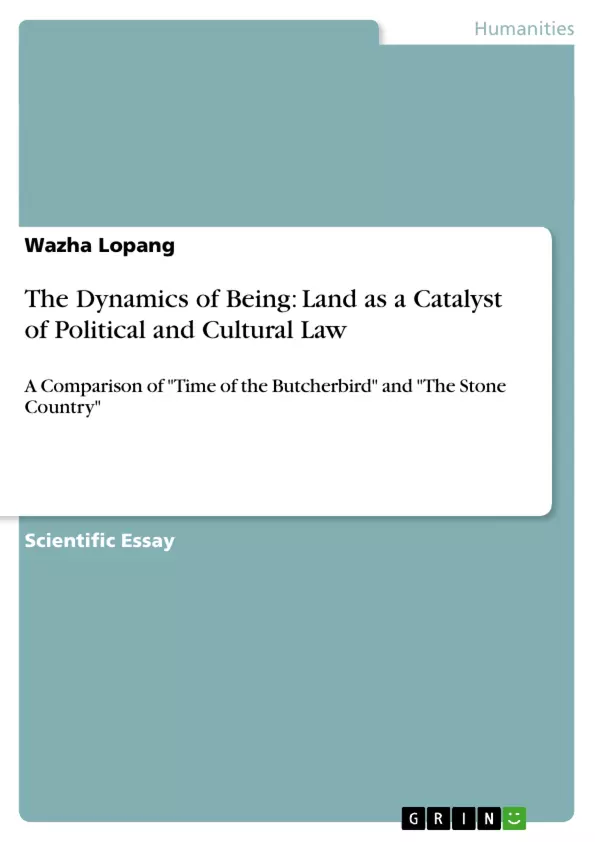The Dynamics of Being: land as a catalyst of political and cultural law. A Comparison of Time of The Butcherbird and The Stone Country
Abstract
In South African literature, more than anywhere else, the land is at the root of everything. The upheaval caused by apartheid and the social dynamics of relationships both within and across the colour line are instigated by the land. Alex La Guma as a realist shows how the South African ‘condition’ is precipitated by the land. The paper looks at how the landscape holds the society hostage whether one is free or behind bars. The argument is that writers and critics of South African literature cannot fully understand the spectrum of race relations if they overlook the role of the landscape. My analysis of Alex La Guma’s texts shows how both whites and blacks mould their identity on the landscape and how their philosophy on life and relationship with one another is buttressed by what it means to have access to this natural resource.
Inhaltsverzeichnis (Table of Contents)
- Dynamics of Being: Land as a Catalyst of Political and Cultural Law, a Comparison of Time of the Butcherbird and The Stone Country
- Time of the Butcherbird
- The Stone Country
Zielsetzung und Themenschwerpunkte (Objectives and Key Themes)
This preview analyzes the themes of land and its influence on the political and cultural landscape of South Africa as depicted in two novels, "Time of the Butcherbird" and "The Stone Country," by Alex La Guma. It explores the relationship between the African people and the land, highlighting how the landscape functions as a metaphor for their social and political oppression under apartheid.
- The Significance of Land in Shaping Identity and Power Dynamics
- The Role of Landscape as a Metaphor for Oppression and Dispossession
- The Impact of Colonialism and Apartheid on the Relationship Between People and Land
- The Interplay of Physical and Psychological Confinement in the Texts
- The Resilience and Resistance of the African People in the Face of Adversity
Zusammenfassung der Kapitel (Chapter Summaries)
This preview will focus on the chapters relating to "Time of the Butcherbird," without including summaries of the final chapter or "The Stone Country." This will provide a comprehensive overview of the novel without revealing any major conclusions or spoilers.
- The novel opens with a stark portrayal of the landscape, emphasizing its barren nature and the dejection of the people who inhabit it. The landscape acts as a reflection of the psychological imprisonment experienced by the African characters.
- The character of Edgar Stokes is introduced as a travelling salesman who struggles to find humor in the arid conditions. His inability to connect with the local people underscores the theme of alienation and hostility within the landscape.
- The Commissioner, representing the apartheid government, is presented as a figure who is seemingly immune to the harsh environment. His detachment from the suffering of the local people illustrates the stark divide between the oppressor and the oppressed.
- The novel explores the forced removal of African people from their land, highlighting the theme of dispossession and the deep connection that the people have with their ancestral lands.
- The drought and the barren landscape are portrayed as a shared burden that affects both black and white communities. However, the novel reveals how the whites benefit from the land's resources, while the blacks are exploited and displaced.
Schlüsselwörter (Keywords)
This preview centers on the themes of land, identity, colonialism, apartheid, oppression, dispossession, and resilience. These key terms capture the core concepts explored in "Time of the Butcherbird" and "The Stone Country." The preview focuses on the use of landscape as a powerful symbol to depict the intricate relationship between the land, the African people, and the oppressive forces of apartheid.
- Citar trabajo
- Wazha Lopang (Autor), 2014, The Dynamics of Being: Land as a Catalyst of Political and Cultural Law, Múnich, GRIN Verlag, https://www.grin.com/document/268827



